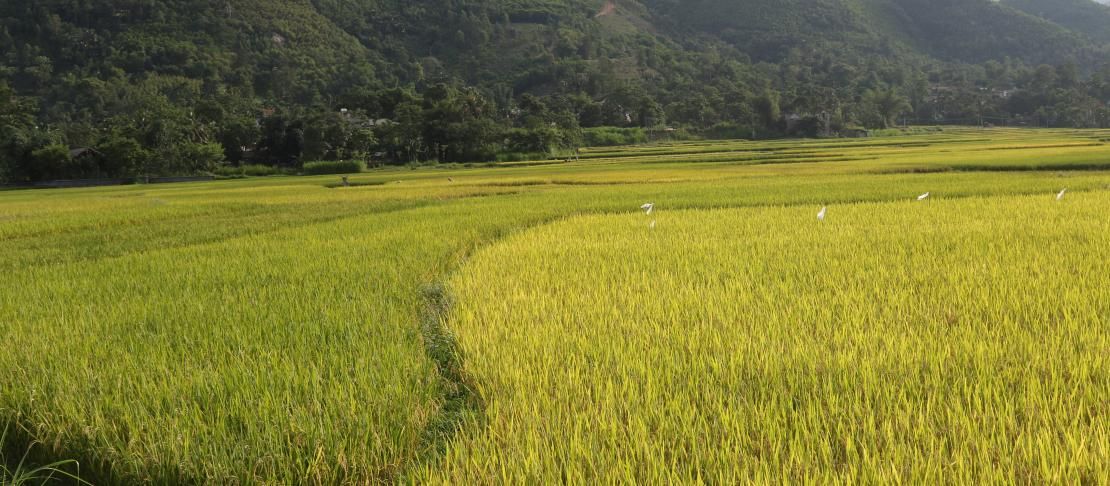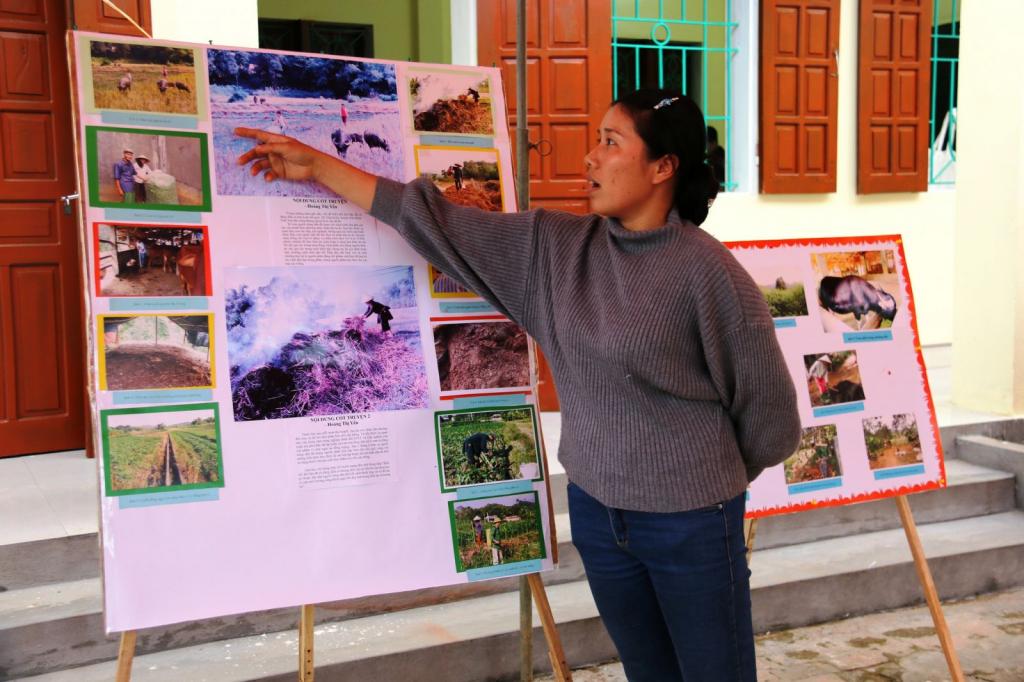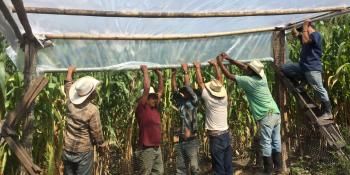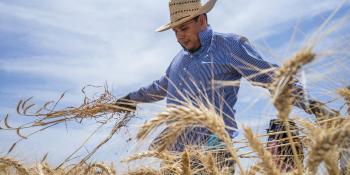Getting the message across: Communicating sustainable farming practices to improve adoption in Vietnam

Different communication initiatives have helped in scaling up and out the climate-smart agriculture technologies and practices implemented in Ma Village. Success of these sustainable practices has already reached potential adopters from nearby villages and provinces.
This is an excerpt of the original blog story, Scaling up and out. The spread of sustainably productive farming practices in Vietnam, first published on the International Center for Tropical Agriculture (CIAT) blog, written by Madelline Romero.
“The only way that climate-smart farming practices could make an impact on Vietnamese society and economy is if they are taken up by as many farmers as possible,” said, Vinh Le Bui, CIAT coordinator for the Climate-Smart Village (CSV) project in Vietnam. This emphasizes the importance of scaling out and scaling up sustainable farming practices and technologies tested in CSVs.
To succeed in scaling up and out, getting the word out about climate-smart agriculture (CSA) technologies and practices implemented in CSVs, such as Ma Village, is crucial. The project, which established CSVs in Vietnam in 2013, has been implemented by CIAT and supported by the CGIAR Research Program on Climate Change, Agriculture and Food Security (CCAFS). A few years after implementation, it has already reduced greenhouse gas emissions from agricultural systems, improved climate adaptation capacities, and became financially rewarding to farmers. After its success, efforts to spread the word about sustainable farming practices done in Ma Village began in October 2016 to encourage scaling out.
In an exhibit held in Ma Village, a Photovoice participant shared her climate-smart agriculture pratices to other farmers. Photo: Bernadette Joven (IRRI)
Communication efforts
One of the first activities done to disseminate information on these farming practices and to engage policymakers in a dialogue is a Photovoice. This activity, which ran from October to December 2016, enabled members and leaders of the village to discuss the problems in their community with officials from the Yen Bai Department of Agriculture and Rural Development (DARD). From this Photovoice project, farmers from Ma Village were able to coordinate with the policymakers on coming up with solutions to the problems they identified and showed through a photo exhibit.
Information on the benefits of sustainable farming practices from Ma Village easily spread to nearby villages. Farmers from Ma Village willingly shared the benefits they are reaping from practicing biological bedding, vermiculture, integrated home gardens, and other CSA practices to farmers from nearby villages. Through word of mouth, information of these CSA practices has reached even the mountainous province of Cao Bang, 300 km away from Yen Bai province where Ma Village is located.
Duong Van Dung, a farmer in Cao Bang province, is one of the farmers who have heard about biological bedding being practiced in Ma Village. He started practicing biological bedding originally implemented in Ma village but he failed to get good results. Hence, when an opportunity to visit Ma Village and learn the practices and technologies applied there came, Van Dung willingly participated in it. In that scaling out activity, more than twenty farmers from Cao Bang province, together with government officials and extension workers, were taught sustainable farming practices they can apply in their own farms.
Reaping positive results
The efforts to spread the word about CSV paid off with farmers like Van Dung from other provinces eager to adopt these sustainable practices. This serves as proof that communication efforts, both through word of mouth and on-site demonstrations, have positive impact on scaling out CSA technologies and practices.
While scaling out is a priority, reaching out to government officials and other people of authority to create and enact policies to support implementation of CSA technologies and practices is simultaneously being done. “CIAT’s Climate Policy Hub, a knowledge center guiding policy and investment decisions related to climate change action, is leading the ‘scaling up’ part,“ according to Madelline Romero of CIAT.
An example of a successful attempt to effectively seek policymakers’ support to enhance implementation of CSA interventions in Ma Village was the Photovoice abovementioned. After learning about how Ganoderma root rot disease affecting acacia trees caused loss of income to farmers in the CSV, the Yen Bai Department of Agriculture and Rural Development initiated a USD 14,000 research project on the disease to help address the farmers’ problems.
Read the original story by Madelline Romero on the CIAT blog: Scaling up and out. The spread of sustainably productive farming practices in Vietnam
Read more:
- Farmers in Ma Village to lead in outscaling climate-smart agriculture
- Good shot for scaling up climate-smart agriculture: Photovoice in My Loi
- “Please share!” – Social learning leads to greater adoption of climate-smart agriculture
Camille Anne Mendizabal is the junior communications specialist for the World Agroforestry Centre Philippines. She is also a communication consultant with the CCAFS SEA program.




